Australia is a free and equal country, but behind its claim that there is no social hierarchy, there is actually a chain of disdain between different classes.
The topic of social class and hierarchy has not been fully discussed, and it is also affecting people's lives-including health, housing and education.
What is the social hierarchy in the eyes of civil servants, police, businessmen, workers, aborigines and newcomers in Australia? The editor will show you one by one.
1. A country full of old, middle-class women.
A week ago, Australian media ABC took a quiz about life habits exposing social grades, and the tests showed that reading, listening to songs and watching TV were all in line with class, education, age, gender, and so on.
The results of the test aroused heated discussion among some people. According to data from the Australian Culture sector Program, many people are surprised to find that their tastes are consistent with those of middle-class and upper-class women aged 40 to 59.
Sue, a civil servant in Darwin, describes herself as a late baby boomer.
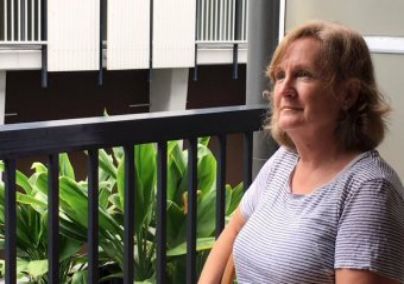
(Sue)
She used to live in Sydney, but moved to the North Territory with her husband for construction work.
"the class of the Northern Territory is very different from that of New South Wales. In terms of housing, education, employment and health, class is deeply rooted in people's minds."
Julia told reporters that her family were "factory officers, miners, railroad workers, shipbuilders, plumbers and all of them politically conscious and proud of the unity of the working class."
"my grandfather said wealth and rank: 'remember, no one is really better than anyone, but only because some people are richer,' she said.
2. Education opens the doo
A constant theme is: the significance of education is the key to hierarchy change.
Greg is a Melbourne with a working-class background.
"Education was once a driver of class mobility for me, and the benefit of Whitlam's education reform in the 1970s was that university passes were determined by achievement. It created an opportunity for me. "
Police officer Chris in Brisbane believes his environment and education provide him with a platform that not all Australians can reach.
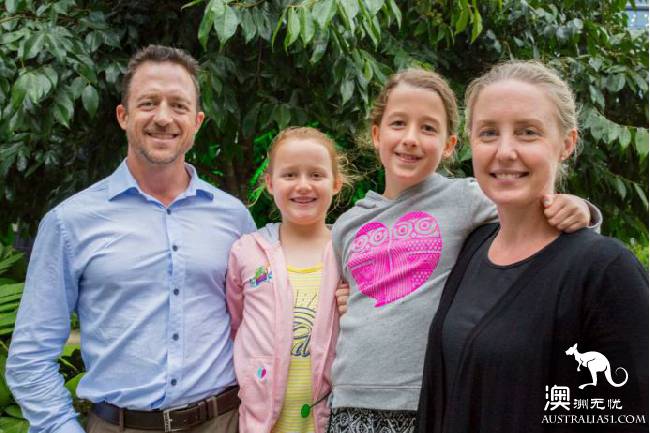
(Chris and family)
"I have a fairly stable career and a very high income, and I am well aware of my superior position in the social hierarchy. I'm glad I went to college and improved myself in an all-round way. "
Therefore, going to college in Australia will still have a sense of superiority!
3. I know it's different since I was born.
Debbie, a 47-year-old indigenous woman from Brisbane, says graduating from college is one of her proudest things.
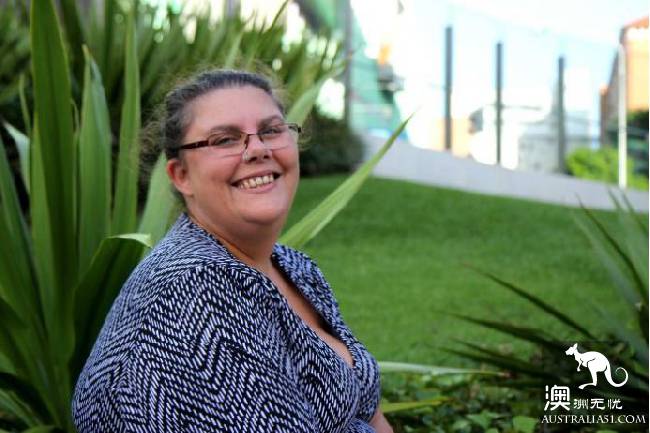
(Debbie)
"I am a lower class, but I have social and cultural capital-though people despise me, I respect the old and the young."
When she was a child, she grew up in a welfare institution and knew that she was different from others. Still, thanks to Australian society, everyone has equal access to education.
"all my belongings are secondhand, not very suitable and dirty. The children of Catholic schools don't like them. "
"I realize that people like me and like them are two concepts."
She said the glimmer of hope in her situation was that she would recover quickly in any suffering.
"this is the essence of privilege, which is invisible to all privileged people. But privilege can also be a drawback. Because people who grow up in poverty are usually the most resilient, "she said.
4. "people in work clothes are not allowed to entertain in consumer situations."
Claude, 's parents emigrated from Italy and told reporters about her experience as a businessman.
"in my experience, all managers have their own parking spaces, their own luxury Christmas parties. Isn't this class division? And this is disguised as a preferential treatment for the work in question. People don't talk about it, but it's accepted as an ordinary thing. Hierarchical differentiation is embedded in our souls and systems. My grandfather once told me that you can do what you want, not what you should do, just because you have the money and the advantage. "
Frank tells us another unpleasant experience in the car showroom.
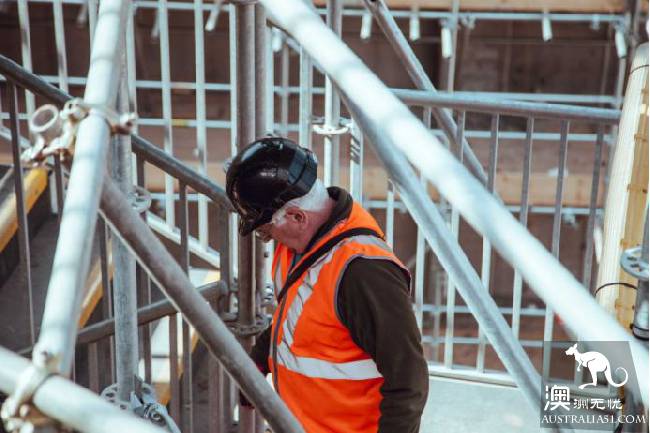
(Frank)
"I'm wearing a work fluorescent suit, asking a car salesman for information about a car. He said, 'there's a manual here, man.' he didn't have time to serve me. And in fact, I can earn about three times his salary. "
In Australia, Alan says, artists also have a unique view of social hierarchy.
"only a small number of artists are making a lot of money, and we are already at the bottom of the economy."
"but our job is to sell to well-educated middle-class and upper-class people, and as a result artists transcend different class structures at the same time."
5. "there are really no obstacles here."
We have also heard that there are no problematic hierarchies in Australia.
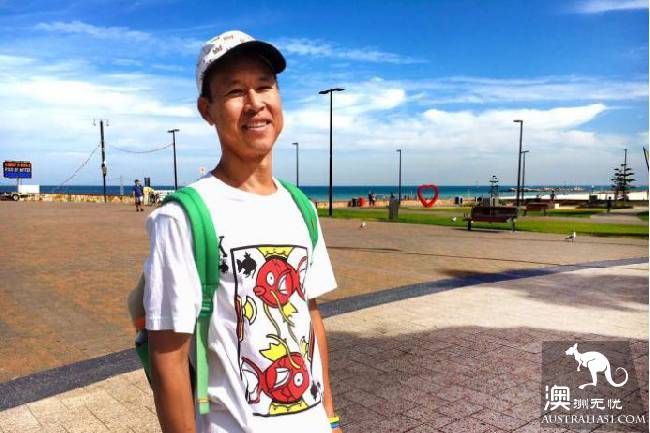
(Kym)
When he wasn't working as a banker, Kym liked to wander around Adelaide in plain clothes. He was also aware that when he wore different clothes, other people's attitudes towards him would change.
"people tend to judge a person by their clothes. Of course there is a hierarchical phenomenon in Australia, but I think it is mainly based on a person's appearance. "
"I can change almost seamlessly in different classes, depending on who I am and when I go out."
He says he also comes from the working class, but class differentiation comes more from self-perception.
"really, it's just a state of mind."
Sydney's accountant Esperanza, whose views come from her growing environment, the Philippines' strict hierarchy, emigrated to Australia in 2007.
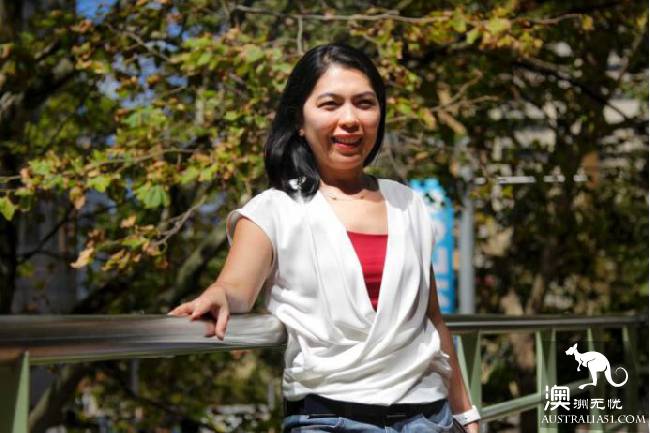
(Esperanza)
"I have friends who think they belong above me. They go to the theater to see ballet and like to do something elegant."
"maybe for financial reasons, I don't like going to those places very much, but I know it's very simple. I can be with them or live in my own class," he said. Because there are no policies or guidelines that require us to stay in our own ranks-that's just a view.
"it's easy to move between Australian classes, but Filipinos are more closed. The ruling class knows exactly where they belong, so it is easier and easier to stay in their original class. "
Compared to Filipinos, Chinese society has a chain of disdain, but it is not so harsh. However, sometimes Chinese people living in Australia still feel that they are unable to integrate into mainstream society.
In fact, in the final analysis, or because of two words: unity.
Compared with other ethnic groups, the Chinese advocate the Confucian ideology of "right heart, self-cultivation, unity of family, governing the country, peaceful world", so stay away from politics, concentrate on doing their own business, make no noise, make no decision. On the contrary, it became a state of disobedience, so it was gradually ignored by the mainstream society.
If the Chinese overseas only sweep the snow, keep the philosophy of philosophy, and the mean, then we still do not get the due respect.